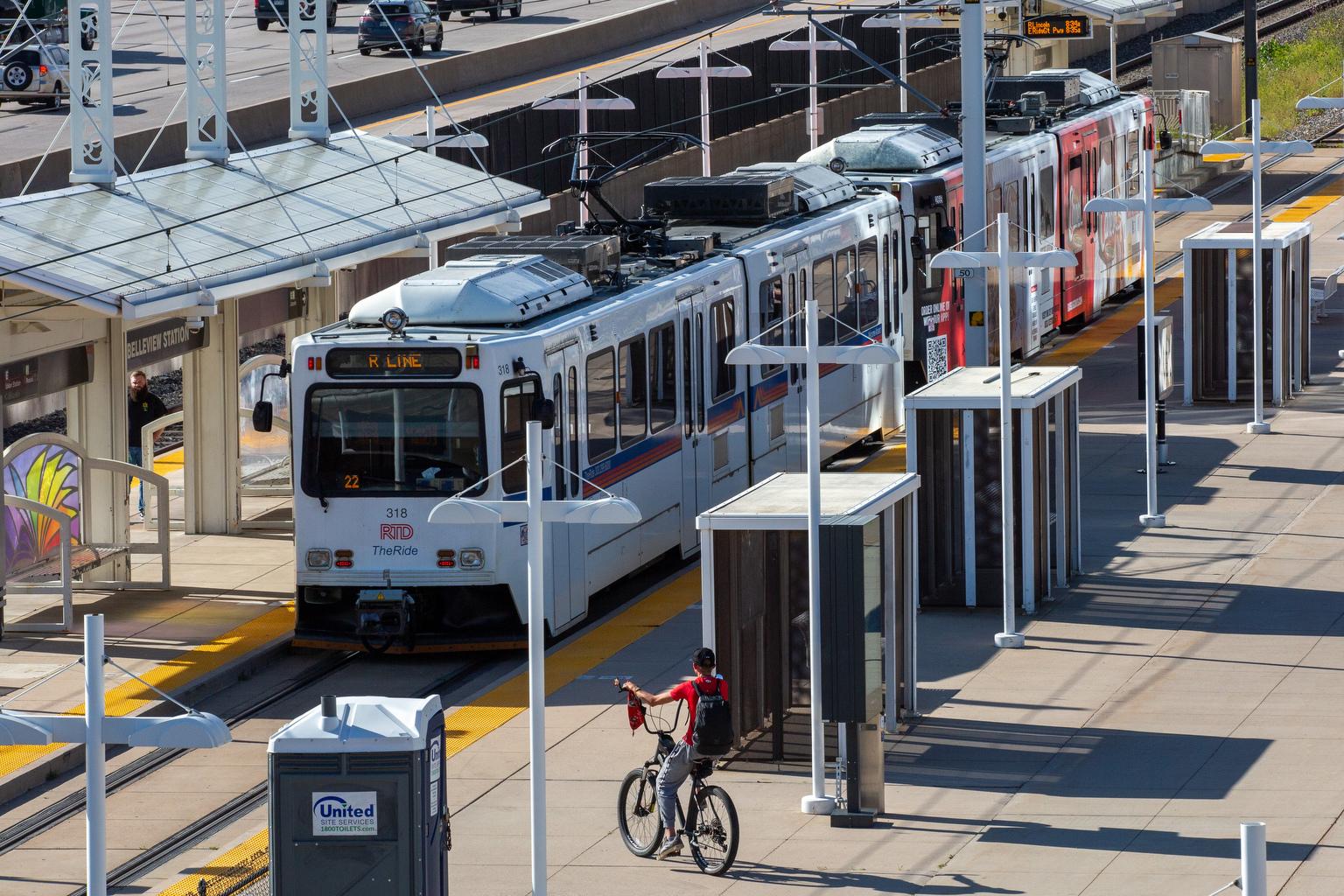
Measure 7A would permanently allow the Regional Transportation District to keep revenue that would otherwise be returned to taxpayers.
RTD, like all governments in Colorado, is subject to the Taxpayer’s Bill of Rights, a constitutional amendment that limits how much money a government can keep and spend. Many local governments have successfully asked voters to permanently lift those restrictions.
RTD’s existing TABOR exemptions are temporary. One of them expires in 2050, but the other is set to sunset later this year. If it lapses, about half of RTD’s annual revenue — about $670 million — that is raised through a sales tax, would be subject to TABOR. That could mean refunds for taxpayers but cuts to public bus and train services.
Here’s the language you’ll see on your ballot:
“Without imposing any new tax or increasing any tax rate, shall the Regional Transportation District’s (“RTD”) authorization to collect, retain and spend all revenues it receives from all sources, including 3 88014620.v2 its sales tax revenues, grant funds and other moneys lawfully received by RTD from the State of Colorado or any other source, originally approved by the voters in 1999, be continued to permit RTD to retain revenue necessary to provide vital RTD services, including but not limited to:
- Providing transportation choices to local residents by maintaining and growing current levels of bus, and rail services;
- Repairing and improving rail lines, buses, bus stops and stations and other infrastructure to preserve the public’s investment in transit;
- Maintaining the availability of services for people with disabilities;
- continuing to provide cleaner, more efficient methods of transportation other than driving on roads and highways;
- And providing transportation services for youth 19 years of age or younger at reduced or no fares;
With all funds subject to independent audit and overseen by the elected RTD Board; as a voter approved revenue change and exemption from any revenue and spending limitations under Article X, Section 20 of the Colorado Constitution?”
How would it work?
If successful, the measure would maintain the status quo at RTD because it’s currently exempt from TABOR revenue limitations. But if it were to fail, about half of RTD’s revenue would be subject to those limitations which could eventually lead to taxpayer refunds and cuts to bus and train service.
RTD officials have estimated TABOR refunds of $2.4 million in 2027 and $3.7 million in 2029, which would be somehow split among taxpayers.
But because of TABOR’s “ratchet-down effect” that kicks in after a recession and recovery, refunds could potentially be much higher. The agency has estimated that it would have refunded $650 million between 2007 and 2019 if TABOR restrictions were in place then.
Who’s for it?
The “Keep Colorado Moving” campaign has been endorsed by a wide variety of organizations, including those that advocate for the environment, business, transit, bicycle infrastructure, the elderly and the disabled, and progressive policies. It’s also been endorsed by dozens of state and local elected officials, including all 15 members of the RTD board.
“Without raising taxes, we can keep transit moving if voters vote yes on 7A,” Danny Katz, director of the Colorado Public Interest Research Group, said at the campaign’s launch earlier this year.
Transit industry firms like WSP Global, Inc. and HNTB Corporation that have done work for RTD are financially supporting the campaign, with donations of $5,000 and $30,000 respectively so far, according to state records. McWhinney Real Estate Services has donated $10,000.
Who’s against it?
The measure does not appear to have an organized opposition, though supporters of the Taxpayer’s Bill of Rights have said they oppose it.
Natalie Menten, a former RTD board member and current candidate for the Jefferson County Board of Commissioners, said TABOR acts as a “24/7 watchdog” on RTD and a successful vote would remove that.
“I’m concerned about that,” she told CPR News in September. “It's creating a blank check for a public agency in control of a tremendous amount of money.”
Previous Denverite coverage of Ballot Measure 7A
Voters will likely be asked to permanently spare RTD from TABOR limits
After a challenging summer for RTD, transit backers launch campaign to lift TABOR limits












